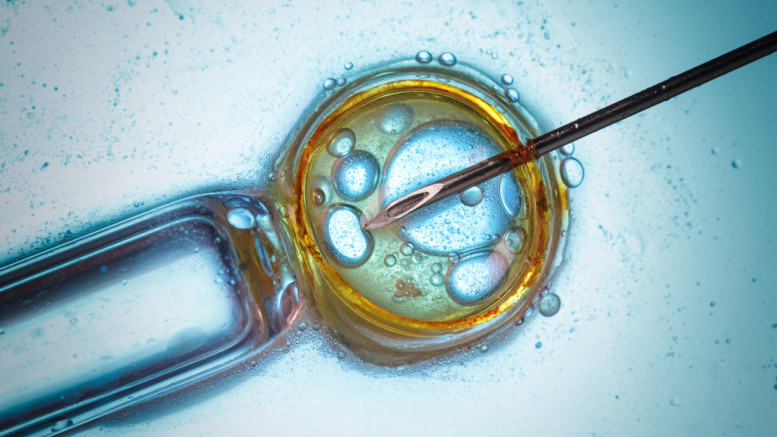Worried what if you have early ovulation during your IVF cycle? This article discusses premature ovulation, its symptoms, causes, and treatments that can help you still get pregnant with the condition.
What is premature ovulation?
Premature ovulation, also called premature ovarian failure or primary ovarian insufficiency is a reproductive health abnormality in women younger than 40. It affects the normal functioning of ovaries, disturbing the ability to produce healthy eggs and causing infertility. In premature or early ovulation, a woman ovulates, but unlike healthy ovulation where the woman releases an egg on the day 14 of her menstrual cycle or period, she ovulates before day 11 where her egg does not get enough time to mature and develop to be able to successfully fertilise.
Women affected by this condition have a significant drop in their natural estrogen production, which eventually leads them to trouble getting pregnant or sustain a healthy pregnancy. However, women with premature ovulation can still get pregnant with the help of some treatments such as IVF or IUI.
What are the symptoms of premature ovulation?
Most women who are affected by premature ovulation tend to visit their physicians or gynaecologists because they experience difficulty conceiving. Other than infertility, common early signs or symptoms of premature ovulation include:
- Irregular periods
- Painful sex
- Dry vagina
- Poor sexual desire
- Irritation or inattentiveness
- Excessive sweating at night, and
- Hot flashes
If a woman experiences one or more of the above mentioned symptoms, she must visit her physician or gynaecologist to discuss the symptoms and get necessary tests done to diagnose the condition.
Commonly, a follicle-stimulating hormone (FSH) blood test or pelvic ultrasound test can be done to diagnose if a woman has premature ovulation. FSH levels are high in women with premature ovulation. And, a pelvic ultrasound can be done to ascertain the number of your ovarian follicles containing immature eggs.
What causes premature ovulation?
In most cases, the exact cause of premature ovulation is unknown. However, researchers have concluded that premature ovulation is a condition linked to ovarian follicles. A woman’s eggs mature and develop inside these follicles. These follicles can cause premature ovulation if they do not function correctly. Common causes that affect ovarian follicles function include:
Genetic disorders
Genetic disorders are DNA abnormalities that are developed by some chances or mutations in a person’s DNA sequences. Common genetic disorders that may cause premature ovulation are Fragile X Syndrome (where X chromosome is damaged, commonly due to lack of folic acid) and Turner Syndrome (where a female is born with a missing X chromosome) .
Autoimmune disorders
An immune system is meant to protect an individual’s body and healthy cells from bacteria and other damaging factors. But an individual with autoimmune disorders has an immune system that starts to attack the healthy cells of the body. Common autoimmune disorders that may cause premature ovulation are Thyroiditis (where your thyroid gland starts to swell) and Addison Disease (where your adrenal glands stop producing enough amount of certain hormones).
Exposure to toxins
Toxin exposure is an exposure to some natural or synthetic substances that cause damaging changes in an individual’s body function and structure. You are likely to develop premature ovulation if you have been exposed to chemotherapy, radiation therapy, chemicals such as pesticides, or cigarette smoke.
Other than above mentioned causes, a woman can also have a higher chance of developing premature ovulation if the woman is aged, has had cancer treatments or ovarian surgery, or has a family history of premature ovulation.
What causes premature ovulation during IVF?
The most common reason why premature ovulation may occur during IVF is that a woman is injected with certain fertility medicines such as gonadotropin to stimulate ovulation and produce multiple high-quality eggs during ovulation. When this injection is given too soon, it might cause the woman to ovulate earlier than normal. And, the released egg cannot be retrieved for fertilisation.
To ensure you do not go through early ovulation during your IVF cycle, the best you can do is, choosing the best IVF Centre in Gurgaon for IVF treatment. An experienced and well-qualified fertility doctor will always ensure that you get the right treatment.
Treatments for premature ovulation
However, it is likely not possible to restore a woman’s healthy ovarian function, you can still get pregnant with some treatments while having premature ovulation disorder. If you are experiencing one or more symptoms of premature ovulation or have already been diagnosed with premature ovulation, there are a few treatments that can help you still get pregnant.
In-vitro fertilisation (IVF)
In-vitro fertilisation (IVF) is an assisted conception technology (ACT) recommended for infertile couples who are suffering from infertility and want to have a child. It involves retrieval of eggs after ovulation and then fertilising those eggs by sperm in a laboratory, and implanting them directly around the uterine lining for further development as a fetus. Now, women who have premature ovulation and still want to get pregnant can consider mature healthy donor eggs for IVF fertilisation rather than your own.
Hormone replacement therapy (HRT)
Hormone replacement therapy (HRT) is another recommended treatment for women having premature ovulation. With HRT, your body can restore the levels of estrogen and other essential hormones for better reproductive health.
The bottom line
This article discussed premature ovulation, its symptoms, causes, treatments, reason of experiencing premature ovulation during IVF, and how a woman can still get pregnant with premature ovulation through IVF. When you are planning to have a baby with premature ovulation, the right IVF centre can help you with that. Find the right gynaecologist, have an appointment, discuss your condition and get the treatment done.
